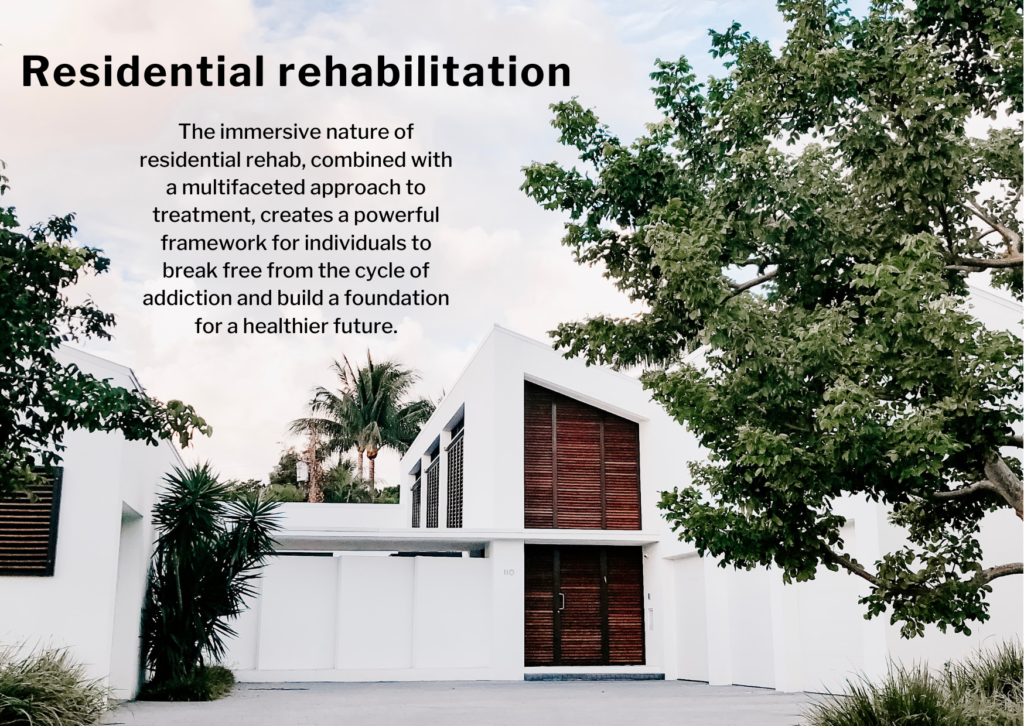
Residential rehabilitation is widely regarded as a highly effective approach to addiction treatment, providing individuals with the structured environment and comprehensive support necessary to achieve lasting recovery.
Structured Environment
One of the key advantages of residential rehabilitation is the structured environment it offers. This setting is crucial for individuals who struggle with addiction, as it removes them from the triggers and temptations of their everyday lives. In a residential rehab facility, every aspect of daily life is designed to support recovery, from the routine of meals and activities to the supervision of trained professionals. This structure helps to eliminate distractions and allows individuals to focus solely on their healing process.
Comprehensive Support
Residential rehabilitation provides comprehensive support that addresses not only the physical aspects of addiction but also the psychological and emotional components. This holistic approach is essential for lasting change, as addiction is often rooted in deep-seated issues that require more than just detoxification. In residential rehab, patients have access to a variety of therapies, including individual counseling, group therapy, and family therapy. These therapeutic modalities help individuals explore the underlying causes of their addiction, develop coping strategies, and build healthier relationships.
Access to Medical Care
Many individuals entering residential rehabilitation require medical care to manage withdrawal symptoms and address any co-occurring health conditions. In a residential setting, medical professionals are available around the clock to provide the necessary care and support. This immediate access to medical assistance ensures that patients can safely navigate the withdrawal process and begin their recovery journey on a solid foundation. Additionally, the presence of medical staff can help in managing any potential complications that may arise during treatment.
Peer Support and Community
One of the most powerful aspects of residential rehabilitation is the sense of community it fosters. Living alongside others who are facing similar challenges creates a supportive environment where individuals can share their experiences, offer encouragement, and build meaningful connections. This peer support is invaluable, as it helps individuals feel less isolated and more understood. The bonds formed in residential rehab can be a crucial source of motivation and accountability, both during treatment and in the long-term recovery process.
Life Skills and Relapse Prevention
Residential rehabilitation also focuses on equipping individuals with the life skills and relapse prevention strategies they need to maintain their sobriety once they leave the facility. This includes teaching practical skills such as stress management, effective communication, and healthy lifestyle choices. By addressing these areas, residential rehab helps individuals build a toolkit of resources that they can draw upon in their everyday lives to navigate challenges without turning to substance use.
Transitioning to Aftercare
The journey of recovery does not end when an individual leaves a residential rehabilitation facility. A successful transition to aftercare is crucial for maintaining the progress made during treatment. Residential rehab programs often include comprehensive aftercare planning, which may involve ongoing therapy, support groups, and other resources to help individuals stay on track. This continuity of care ensures that individuals have the ongoing support they need to navigate the challenges of early recovery and beyond.
Residential rehabilitation empowers lasting change by providing a structured, supportive environment that addresses the multifaceted nature of addiction. Through comprehensive care, peer support, life skills training, and robust aftercare planning, residential rehab helps individuals build a strong foundation for a life free from addiction. For many, this immersive and holistic approach is the key to achieving lasting recovery and reclaiming their lives.